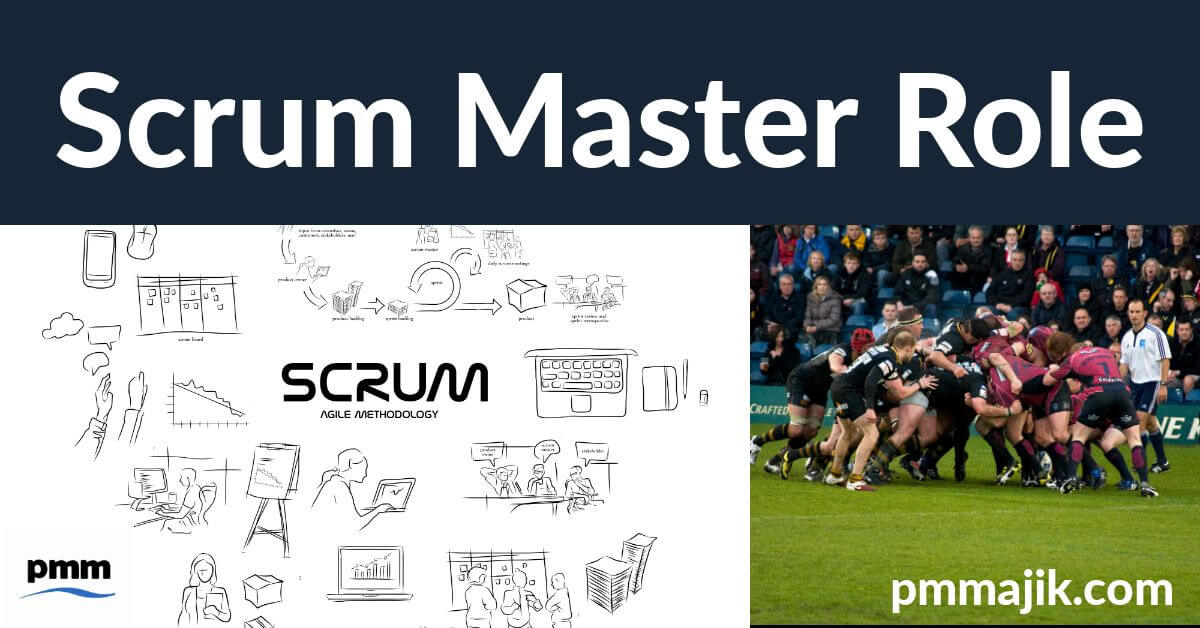In Agile Project Management, the Scrum Master takes on the responsibility of facilitating the project and the team.
The role was created in association with the scrum framework and is intended to identify an individual who is a scrum expert and can therefore mentor and coach others in the team.
Although Scrum Master sounds like a grandiose title, this position doesn’t hold any particular authority. Scrum Masters are usually individuals who hold a position of influence within the organisation and take the stance of servant-leadership.
Responsibilities
Scrum Masters have a number of important responsibilities within the project management office:
- Ensuring that all members of the team fully understand the goals and scope of the project.
- Identifying appropriate techniques to manage project backlog.
- Shielding the team from outside influences and distractions.
- Bridging the gap between the team and external bodies, such as the product owner.
- Dealing with team dynamics.
- Creating and promoting an effective environment.
Required Skills
There are a number of core skills that a Scrum Master must possess.
Scrum and agile training
To facilitate an agile project team, the Scrum Master must have a sound understanding of scrum principles and their application. Scrum also has its own set of terminologies which must be understood to apply the scrum framework properly.
Organisational Skills
Scrum Masters are responsible for keeping a project on track, therefore their organisational skills must be fine-tuned. Often, they will use specific programmes to help maintain the structure of the project
Familiarity
The Scrum Master acts as the bridge between the team and product owner, they must therefore have technical familiarity to enable them to find the right system and processes to get the project completed in the most effective way.
Coaching
Coaching other members of the team to follow processes properly, especially team members who are new to agile, requires strong teaching skills. Whilst Scrum Masters have in-depth knowledge of scrum, they must be able to communicate this to others effectively.
Facilitation of conflict
In any team, there will be differing personalities, opinions and work styles. Scrum Masters must be able to facilitate the resolution of conflict between team members by using negotiating skills. Having strong interpersonal skills will assist in this.
Benefits of a Scrum Master
Having a Scrum Master within the team gives all team members constant access to someone who has expert knowledge of scrum and its application. This knowledge can help the team find the most appropriate way in which to apply the methodology to the project.
Another benefit to the team is that the Scrum Master can shield them from external influences that may cause distractions and obstacles. This allows the team to focus solely on the work at hand and will ensure a greater outcome.
Common Issues
When the role of Scrum Master isn’t applied properly, issues can arise.
Sometimes Project Managers are given the role of Scrum Master but as they are used to a more controlling type of leadership, they prove to be largely ineffective. This is compounded when a Scrum Master is appointed who doesn’t have experience of working within an agile environment.
Well established teams who have a solid understanding of agile often require less coaching from a Scrum Master, as opposed to newly developed teams. It is a common mistake to expect that the Scrum Master’s workload will be the same with every team they work with.
How to become a Scrum Master
Certification courses are available, which provide the most direct route to the position of Scrum Master.
Whilst being certified is advantageous, it is vital to have real world experience of scrum project management. Having this experience proves that a potential Scrum Master has the ability to apply their knowledge to a real project.
The Scrum Master is a unique role that links the product owner and the project team.
Scrum teams are generally self-managed, and so it is not the responsibility of the Scrum Manager to act as a Project Manager. They instead facilitate the team from their position of influence.
Additional Agile Resources
For a more general overview, take a moment to check the article Overview of Agile Project Management Roles.






